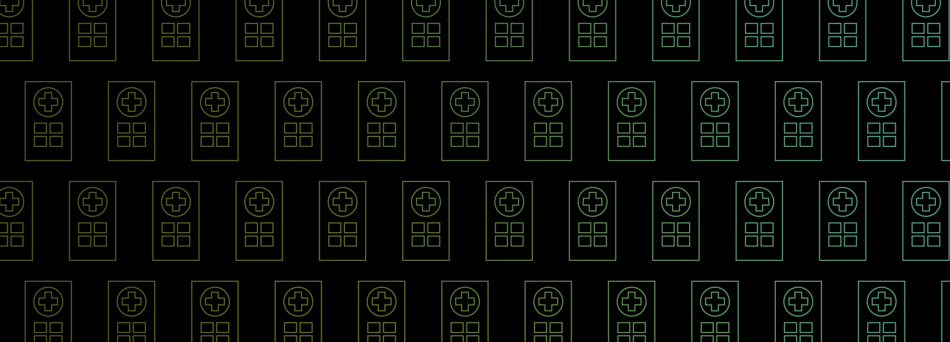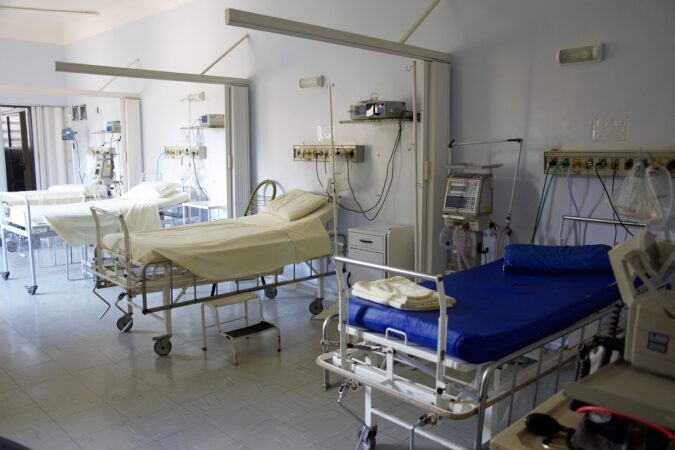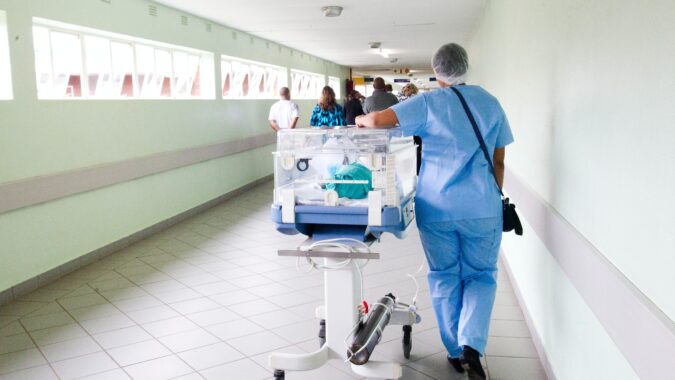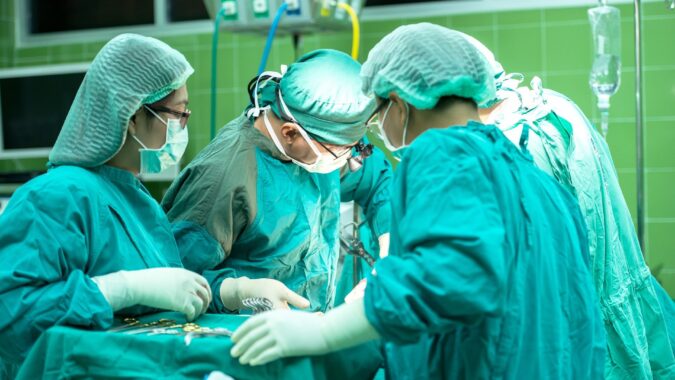
Hospital Waste Management
Hospital waste must be managed safely and effectively to avoid exposing patients, staff, the public and the environment to potentially harmful diseases, toxins, and objects. Safe and secure hospital waste management is a legal requirement to prevent such risks. Failure to manage hospital waste appropriately could lead to serious repercussions.
We can deliver safe and effective hospital waste disposal and management services to both NHS and private sector hospitals. Our leading waste management providers offer the latest technology in waste collection and disposal to ensure your hospital has an efficient waste management system in place. All types of hospital waste can be safely removed and disposed of in line with relevant regulations.
Learn more about dealing with hospital waste and get a free quote for hospital waste collection anywhere in the UK, today. Contact us online or call 0800 211 8390 and speak to our friendly and expert team.
Get a free hospital waste collection quote
Get a fast FREE quote for your hospital waste removal
- Free quote within 1 hr
- Any type of hospital waste
- FREE bins and delivery
- We cover all of the UK


Hospital waste
disposal
Disposal of waste in a hospital varies depending on the type of rubbish produced. It’s vital you store all rubbish your hospital creates in the right bins and arrange collection by licensed waste carriers. They’ll transport the waste to a relevant facility for any required cleaning, sorting, treatment, recycling, and disposal.
Methods of disposal of hospital waste differ based on their type. Most clinical waste will be sent to an appropriate facility and incinerated to safely eliminate the risk of hazardous or infectious waste harming humans, animals, and the environment. Some clinical waste can be treated and recycled, which is our preferred method where possible.
Other types of waste generated in hospitals are more likely to be recycled. WEEE waste is often broken down and individual parts sent for recycling, such as any metal or plastic they contain. With general waste we try to avoid as much as possible going to landfill, instead directing to incinerators that can convert it into refuse-derived fuel.
Food waste from hospital canteens can be sent for anaerobic digestion, which produces biogas and biofertiliser to help generate renewable energy – rather than going to landfill. Any plastic, paper and cardboard will go for recycling and be turned into new materials and products for reuse.

Hospital waste
bins and bags
There are a wide variety of hospital clinical waste bins available to safely separate, store, and dispose of medical waste. It’s vital that types of clinical waste are stored in the correct individual hospital waste bags and bins to prevent contamination. This ensures the proper and safe disposal of potentially hazardous, infectious, and other materials.
Choose from a range of hospital waste bins and arrange for delivery of as many as you need for your hospital. Some are available in different sizes, while certain hospital waste bags come as standard. Our expert team can advise on the right bins and bags for your hospital waste.
Explore some of the most common hospital waste bins and bags.
Hospital waste
collection
Our hospital waste management services are fully accredited. We can provide hospitals around the UK with expert advice and assistance, including secure bins to safely store clinical waste, WEEE waste, recycling, and more before collection. Wherever you’re based, we have hospital waste management services local to you.
You can schedule hospital waste collection on a daily, weekly, or fortnightly basis depending on the size of your hospital and amount of waste generated. Whatever your requirements, we can provide a uniquely tailored waste management service to fulfil the waste needs of your hospital.
It’s possible to change the frequency of collections, amount, and size of bins you need based on the adapting nature of your hospital. Our licensed waste carriers will collect your hospital waste at an agreed time and accessible pickup point, before transporting to a nearby facility for safe and legal disposal in line with all relevant regulations.
For more help and information about our hospital waste management services, speak to one of our friendly and expert team – you can also get a free quote for your hospital. Call us today on 0800 211 8390 or contact us online with any questions you may have.
How does hospital
waste collection work?
-
Select your free bins
It’s quick and easy to organise commercial waste collection for your business.
Simply start by telling us the:
- Type of waste you need removing
- Size of bins you require
- Number of bins you want
We’ll provide you with a free quote.
-
Arrange delivery
When you’re happy with the type, number, and size of free bins, tell us when you need your bins delivering.
Let us know about any access issues where you want the bins delivering – such as locked gates, access codes and times. We’ll get you up and running in no time.
-
Fill up your bin
After the free bins arrive at your chosen location, fill them up with the agreed waste type.
Make sure you remain within any weight limits for the specific waste type and bin size.
-
Get your business waste collected
We’ll arrange waste collection at a time and frequency to suit you and the amount of waste you have.
As featured in…
What are the
types of hospital waste?
Hospital waste comes in various forms. Healthcare waste is understandably the main type, which includes many kinds of refuse from the medical care provided in hospitals – everything from needles and PPE to medications, blood bags, and more. However, even packaging, food, and general waste generated in hospitals classes as commercial waste and needs proper storage, removal, and disposal.
All types of hospital waste have the potential to seriously harm humans, animals, and the environment through improper management. Special care and precautions must be taken when handling and disposing of hospital waste due to its dangerous nature. If your hospital waste isn’t disposed of appropriately, the effects can be devastating, for the public, the environment, and your organisation.
Some of the main types of hospital waste and examples include:
- Clinical waste – everything from sharps to infectious and anatomical waste, clinical waste covers most types of healthcare waste you’d expect to find in a hospital. Some of this could cause infection but it also covers non infectious medical waste.
- Hazardous waste – any waste produced in hospitals that may harm humans and the environment. Common examples include any chemicals and infectious medical waste.
- Chemical waste – cleaning products, chemically contaminated sharps, solvents, and any oils can be toxic, flammable, and reactive so need safe storage in hospitals.
- Food waste – all waste food from patients, the canteen, and any other food facilities should be disposed of in specific food waste bins.
- General waste – non-recyclable rubbish discarded by patients, visitors, and staff, such as food packaging, scraps of food, and other types like what you’d find in households.
- WEEE waste – any electrical goods powered by battery or a plug, such as the machinery used throughout hospitals.
- X-ray waste – old X-ray film, chemicals, and equipment that are no longer needed or are broken.
Hospital waste
disposal guidelines
In the UK, the Department of Health (DoH) has published guidance on the safe management of healthcare waste – which applies to both NHS and private hospitals. These hospital waste disposal guidelines provide information about infection control and health and safety legislation, environment and waste legislation, and transport legislation. The main four regulations covering hospital waste management are the:
- Environmental Protection Act 1990
- Controlled Waste (England and Wales) Regulations 2012
- Hazardous Waste (England and Wales) Regulations 2005
- Carriage of Dangerous Goods (CDG) Regulations
Some of the key points included in the DoH’s hospital waste disposal guidelines include to:
- Dispose of clinical waste immediately and as near the point of production as possible.
- Use the correct colour coded hospital waste bags.
- Ensure hospital waste bags aren’t more than three-quarters full and within their weight limits.
- Store all hospital waste in a safe and lockable area before collection.
- Label any sharps bins with the point of origin, date of assembly, and disposal.
Disposing of hazardous substances
in health and social care
Any hazardous substances must be stored safely in hospital, health, and social care settings under the Control of Substances Hazardous to Health Regulations (COSHH) 2002. This is to minimise risk and exposure on-site before they’re removed and disposed of. When disposing of hazardous substances in health and social care you must have the right bins for each hazardous waste type. These include:
- Sharps bins – yellow and purple-lid sharps bins are both to store contaminated and potentially hazardous sharps waste.
- Clinical waste bags – yellow, orange, purple, and white clinical waste bags are all used to safely store different types of hazardous medical waste.
- Clinical waste bins – there are various clinical waste bins of different colours to store hazardous clinical waste before its disposal.
Check the waste classification produced in a health and social care setting to separate and store any hazardous substances safely. Arrange collection of any medical waste bins or bags you use to hold hazardous substances by licensed waste carriers. They’ll transport it to an appropriate facility for safe and legal disposal – often via incineration.
When disposing of hazardous substances in health and social care you should keep records for three years at the premises where it was produced. Our licensed waste carriers will provide a free duty of care certificate for each load removed, which you should hold onto for safekeeping.
Read our reviews
James was very helpful and to be honest since starting with this company the service has been excellent.Christeen Norfolk
Hospital waste
FAQs
-
What is hospital waste management?
Hospital waste management is simply the way all waste produced in a hospital is controlled. This includes the techniques used to ensure every type of waste is stored safely, removed from the hospital properly, transported to an appropriate facility, and disposed in an environmentally friendly way in line with relevant regulations.
A hospital waste management plan should be in place detailing how this is achieved for all waste types. Staff need to be aware of this to ensure waste is stored, removed, and disposed of safely. It also helps prevent spread infection and disease via waste.
-
Why is hospital waste management important?
Hospital waste management is important to protect the health of staff, patients, the general public, and the environment. Good hospital waste management reduces the risk of diseases and infections spreading and avoids people being exposed to potentially hazardous waste types. It creates a safe workplace for hospital workers and patients.
A strong hospital waste management plan also protects the environment. It should ensure all clinical, chemical, hazardous, and other waste is properly disposed, avoiding any cross-contamination or pollution spreading through landfill.
-
What are the hazards associated with hospital waste?
Some clinical waste may contain harmful microorganisms. These can be infectious and harmful to patients, hospital staff, and the public. Improper storage and disposal increase the risk of diseases spreading and contamination. Exposure to hazardous and chemical waste produced in hospitals can also be harmful to human health.
To reduce any hazards in a hospital it’s important your organisation follows proper clinical waste guidelines.
Get a fast, free quote for hospital waste disposal
Get a fast FREE quote for your hospital waste collection
- Free quote within 1 hr
- Any type of hospital waste
- FREE bins and delivery
- We cover all of the UK